Search
Search Results
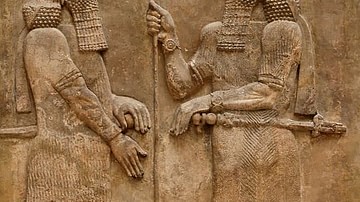
Definition
Sargon II
Sargon II (r. 722-705 BCE) was one of the most important kings of the Neo-Assyrian Empire as founder of the Sargonid Dynasty which would rule the empire for the next century until its fall. He was a great military leader, tactician, patron...
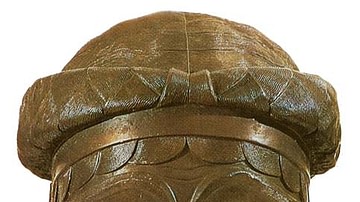
Definition
Sargon of Akkad
Sargon of Akkad (r. 2334 - 2279 BCE) was the king of the Akkadian Empire of Mesopotamia, the first multi-national empire in history, who united the disparate kingdoms of the region under a central authority. He is equally famous today as...
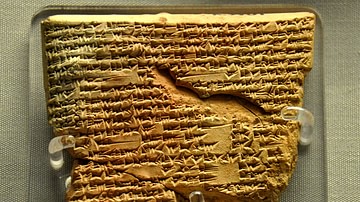
Article
Sargon and Ur-Zababa
Sargon and Ur-Zababa is a Sumerian poem, date of composition unknown, relating the rise to power of Sargon of Akkad (r. 2334-2279 BCE), founder of the Akkadian Empire. The work is classified as a Mesopotamian folktale, relying on motifs such...
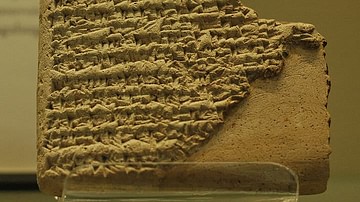
Article
The Legend of Sargon of Akkad
The Legend of Sargon of Akkad (c. 2300 BCE) is an Akkadian work from Mesopotamia understood as the autobiography of Sargon of Akkad (Sargon the Great, r. 2334-2279 BCE), founder of the Akkadian Empire. The earliest copy is dated to the 7th...
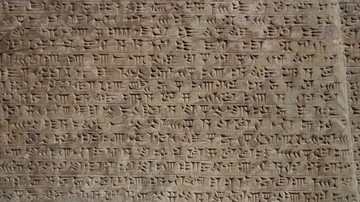
Definition
Enheduanna
The Akkadian poet Enheduanna (l. 2285-2250 BCE) is the world's first author known by name and was the daughter of Sargon of Akkad (Sargon the Great, r. 2334-2279 BCE). Whether Enheduanna was, in fact, a blood relative of Sargon's or the title...
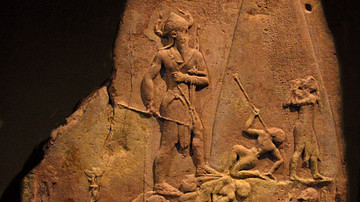
Definition
Naram-Sin
Naram-Sin (r. 2261-2224 BCE) was the last great king of the Akkadian Empire and grandson of Sargon the Great (r. 2334-2279 BCE) who founded the empire. He is considered the most important Akkadian king after Sargon (or, according to some...
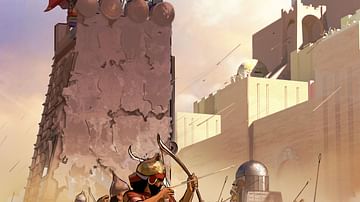
Definition
Assyrian Warfare
Assyria began as a small trading community centered at the ancient city of Ashur and grew to become the greatest empire in the ancient world prior to the conquests of Alexander the Great and, after him, the Roman Empire. While the Assyrians'...
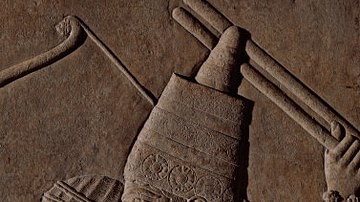
Definition
Ashurbanipal
Ashurbanipal (r. 668-627 BCE, also known as Assurbanipal) was the last of the great kings of Assyria. His name means "the god Ashur is creator of an heir" and he was the son of King Esarhaddon of the Neo-Assyrian Empire. In the Hebrew Tanakh...
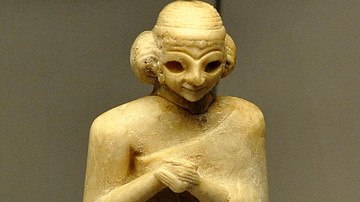
Article
Women in Ancient Mesopotamia
The lives of women in ancient Mesopotamia cannot be characterized as easily as with other civilizations owing to the different cultures over time. Generally speaking, though, Mesopotamian women had significant rights, could own businesses...
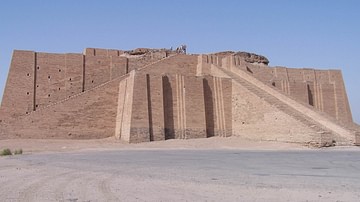
Article
Ten Ancient Mesopotamia Facts You Need to Know
Mesopotamia is the ancient Greek name (meaning “the land between two rivers”, the Tigris and Euphrates) for the region corresponding to modern-day Iraq and parts of Iran, Syria, and Turkey. It is considered the “cradle of civilization” for...